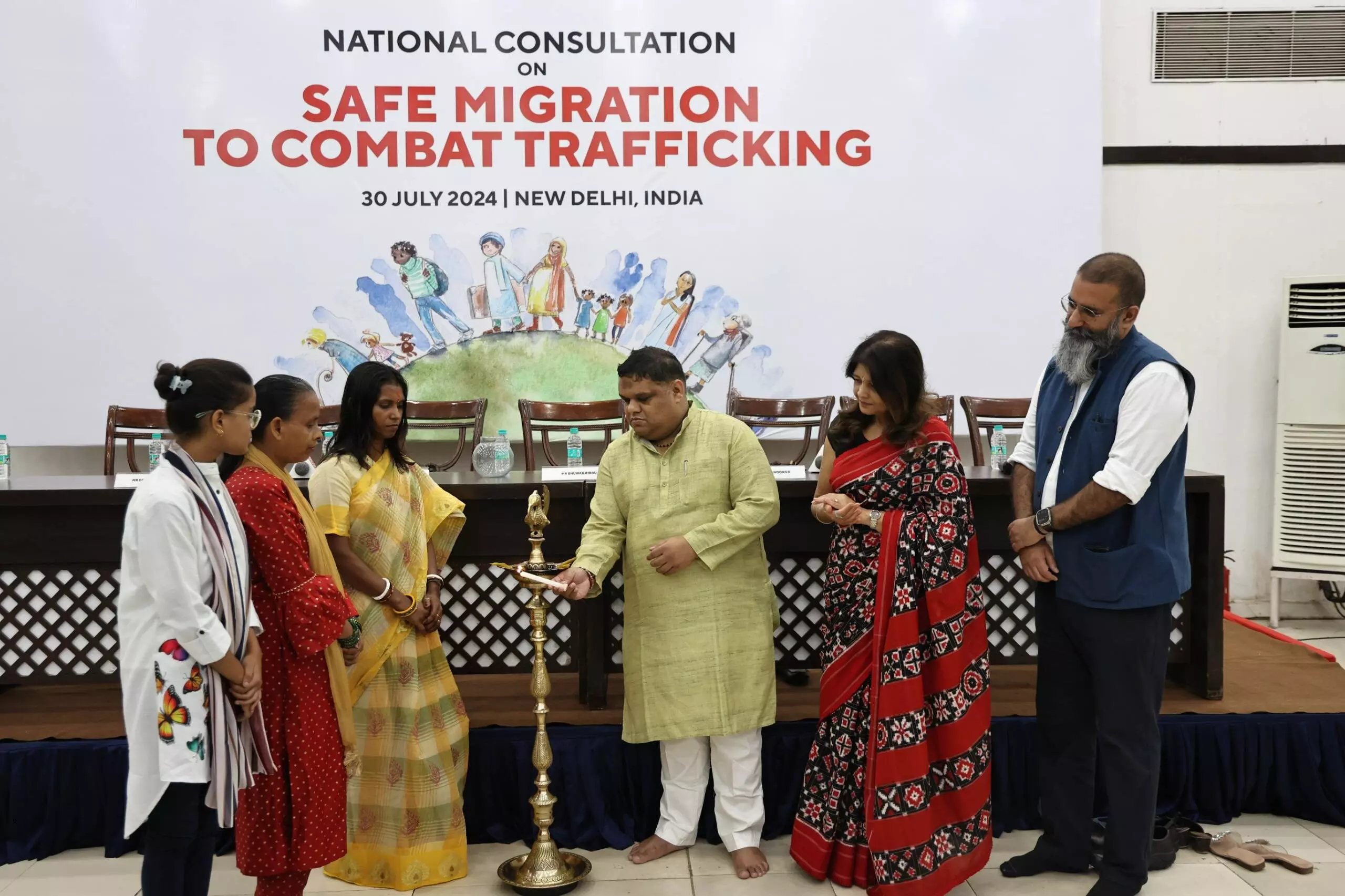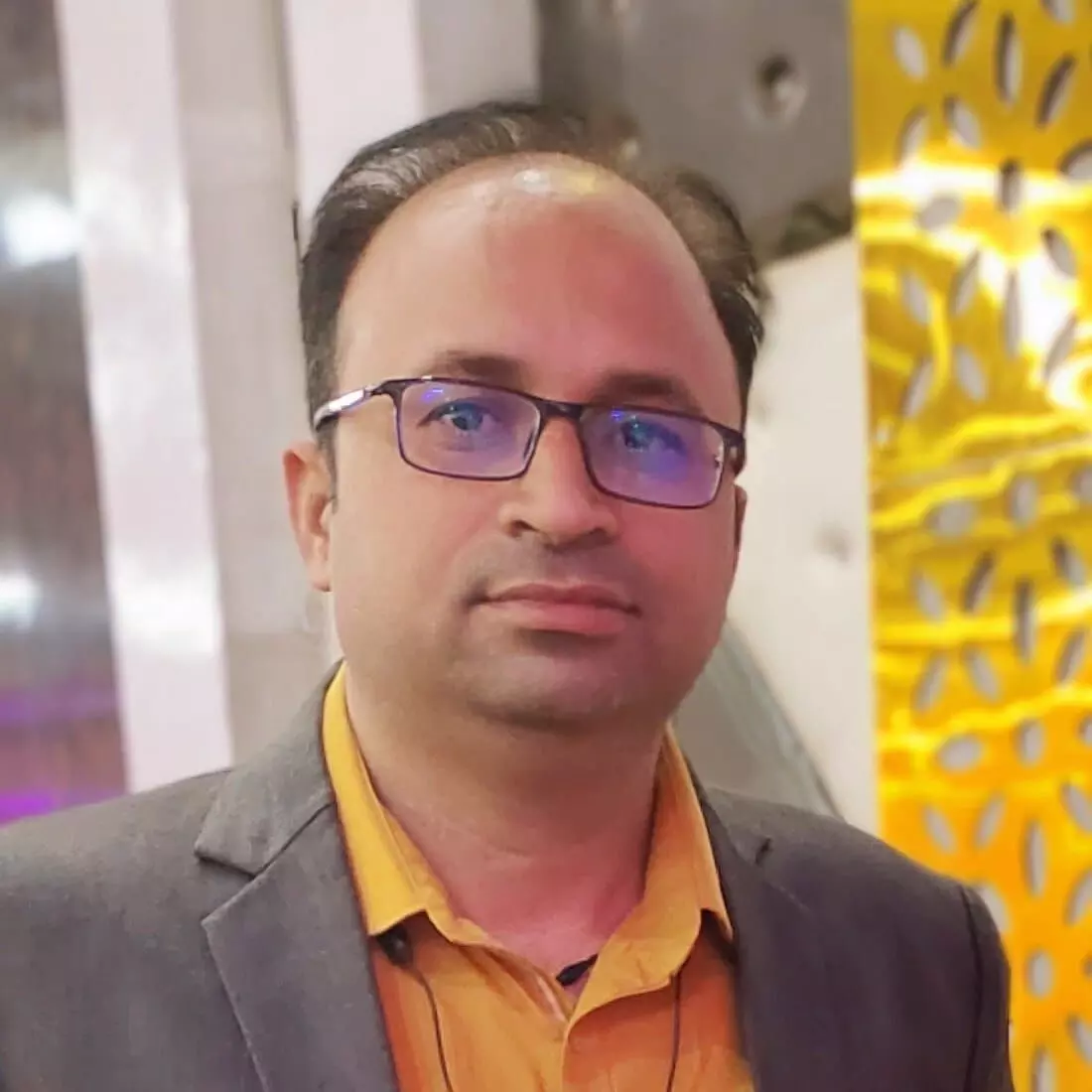TACT' Initiative Launched to Combat Child Trafficking Using Technology

As the entire global community grapples with the issue of human trafficking and its alarming rise across borders, Just Rights for Children Alliance in New Delhi today announced an initiative named ‘TACT- Technology Against Child Trafficking ‘ to combat trafficking and to promote safe migration by bringing survivors at the forefront both for rehabilitation and actionable intelligence inputs for the prosecution of traffickers. The 5-point initiative was announced at a national consultation ‘‘Safe Migration to Combat Trafficking’ organized by Association for Voluntary Action (AVA) which is a part of the Just Rights for Children Alliance comprising 180 NGO partners across the country working on child protection. Among the participants, who were representatives from government, law enforcement agencies, child protection functionaries, experts, migrant women workers, and civil society organizations, included Priyank Kanoongo, Chairperson, National Commission for Protection of Child Rights; Manoj Yadava (IPS), Director General, Railway Protection Force; Shikha Goel (IPS), Additional Director General of Police, CID, Telangana; Bhuwan Ribhu, noted Child Rights Activist and founder, Just Rights for Children Alliance; Dr Shyamal Prasad Saikia, Chairperson, Assam State Commission for Protection of Child Rights; and Davindra More, Chairperson, Madhya Pradesh Commission for Protection of Child Rights.
The five key areas that the TACT initiative focuses on are: Intelligence Sharing (creating and sharing a global database of traffickers); Financial Tracking (Tracing illegal payments through banks and financial institutions); Tech Collaboration (Partnering with tech firms to identify technology-driven trafficking patterns); Safe Migration (Strengthening global portals for safe migration and ensuring access to government schemes); and Survivor Support (Providing psychological first aid to survivors to enhance information flow about traffickers).
The alarming statistics on trafficking reveal it as the third largest organized crime after drugs and arms. The annual global profits from forced labour and forced sexual exploitation are estimated at $236 billion, with 27.6 million victims of human trafficking at any given time, one-third of whom are children.
Speaking at the opening of the consultation, Priyank Kanoongo, Chairperson of the National Commission for Protection of Child Rights (NCPCR), said, “India has shown the way for rehabilitation since time immemorial. One important key to ensure the rehabilitation of survivors and to bring them back into the mainstream is through education. The last ten years have seen significant development in the field of infrastructure and digital monitoring, and today we are well-positioned to monitor every movement. All we now need is the active support of all the state governments for safe migration and for ensuring that all children, irrespective of their place of birth, are admitted to schools. Besides rescuing children and prosecuting the culprits, society needs to collectively take preventive measures to combat trafficking. When you assist a widow and attach her to a government scheme, you prevent her child from being vulnerable. It is our collective duty to take such steps and combat trafficking.”
Stressing on the need for an initiative as comprehensive as TACT, noted Child rights activist and Founder, Just Rights for Children Alliance, Bhuwan Ribhu said, “Even one child trafficked is a child too many. Victims of trafficking ought to be at the core of our strategies in fighting this global organised and economic crime. The first step to transform a victim into a survivor is through psychological first aid. We have to involve survivors at all levels in combatting trafficking. No one can provide clues to the approach of traffickers and the scale of the issue better than survivors. Their participation in intelligence gathering, identifying the money trail and patterns of technology-driven trafficking is crucial in fighting this global organised and economic crime.”
He further highlighted the emerging digitally-enabled and cyber-enabled trafficking through social media. He stressed that India needs a comprehensive anti-trafficking law for prevention, rehabilitation, and repatriation of the survivors while ensuring the prosecution of traffickers.
Speaking at the occasion, Shikha Goel (IPS), Additional Director General of Police, CID, Telangana, said, “Migration is the engine to progress and safe migration is the key. Migrants are the nation builders and ensuring their dignity and welfare is our collective responsibility and need. However, with new dimensions of trafficking that have emerged, we need to urgently address them. To begin with, we can have a national helpline number for migrant workers so that they can immediately seek help, information in case of any need. Besides, we need targeted awareness in every district, every state so that while the migrant workers are well aware of their rights, their employers know their responsibilities and there is no exploitation of the workers or their families.”
Other key dignitaries who were present at the day-long consultation included Ankita Surabhi, International Organization for Migration; Dr Shyamal Prasad Saikia, Chairperson, Assam State Commission for Protection of Child Rights; G. Sunanda, Joint Director, Women and Child Development, Telangana; Vineet Kapoor (IPS), Deputy Inspector General (DIG), Madhya Pradesh; Parveen Joshi, Chairperson, Haryana State Commission for Protection of Child Rights; S C Yadav, Additional Labour Commissioner, Delhi; Insaf Nizam, ILO; Mohit Chowdhary, Chief Probation Officer, WCD, Uttarakhand; S S Kumar, Joint Commissioner Labour, Andhra Pradesh; Jatashankar, Manav Seva Sansthan; and Ajay Chowdhary (IPS), Special Commissioner, SPUWAC and SPUNER & Armed Police.
Government of India records show that 450 million people migrate within the country, and according to the National Crime Records Bureau data from 2022, every day 8 children are trafficked in the country.
